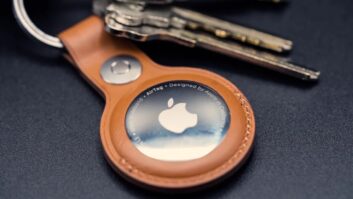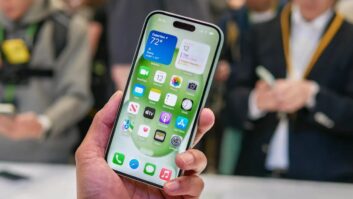Marshall, Texas — An MP3 player patent-infringement suit filed by little-known Texas MP3 Technologies against Apple, Samsung and SanDisk is rooted in a U.S. semiconductor company’s efforts to fend off competition from low-cost Asian competitors that it claims copies its designs.
The suit, filed in federal court here, is based on a patent previously owned by fabless semiconductor company SigmaTel of Austin, Texas. SigmaTel, whose products include MP3 player chips, sold the patent rights on July 25, 2006, to Texas MP3 Technologies, a patent-licensing company that it said would have the resources to pursue patent infringers. Companies who buy MP3 chips from SigmaTel, however, get a free license to the patent.
In a July 2006 press release, SigmaTel chairman Ron Edgerton described the patent as “a system-level patent [that] targets a broad base of consumer electronic devices and could potentially affect many manufacturers and retailers in the U.S.” He continued, “We believe the patent licensing company has the resources to realize the full potential of the Moon-Hwang patent [named after the original two inventors]. Because these are such basic patents to digital music, we believe it will be difficult to design around these patents and have a commercially viable player.”
In the release, he also said that SigmaTel has “increased our investment in our IP strategy targeted at enforcing our intellectual property in China and will continue to fund our strategy as needed to protect our stakeholders’ investment.” Intellectual property, he said, “must be respected on a worldwide basis for companies to continue their innovation efforts.”
The patent, which was granted June 20, 2006, for the United States, is based on a family of patents that SigmaTel acquired over time from multiple sources including D&M Holdings, which sold off its Rio MP3 player business and IP to SigmaTel in 2005. It acquired the remaining ownership of the patents in 2006 when it paid an unspecified amount to ReignCom of South Korea.
Because the patent rights were split among different companies, the rights were not vigorously enforced, SigmaTel said. The original patent rights were based on the invention of two Korean inventors, Kwang-su Moon and Jung-ha Hwang, who filed for patents in 1998.
“Because these are such basic patents to digital music, we believe it will be difficult to design around these patents and have a commercially viable player,” SigmaTel said in the July 2006 press release announcing the sale.
In the July 2006 press release, SigmaTel described the patent, based on a family of patents that it acquired, as “a system-level patent applicable to many devices that play digital music files, including MP3 players, gaming handhelds, cellphones and multimedia players.” The patent, granted June 20, 2006, broadly describes “an MPEG portable sound system and a method for reproducing sound data compressed using the MPEG method.” The patent does not lay claim to ownership of any part of the MP3 standard codified by the Moving Pictures Experts Group (MPEG).
In 2005, SigmaTel went to the U.S. International Trade Commission to sue Chinese chip maker Actions Semiconductor, claiming Actions violated SigmaTel’s U.S. audio patents.
A clerk in the federal district court in Marshall said it would likely take until the end of the year for a hearing to be held to schedule a trial.
Texas MP3 Technologies, also based here in Marshall, is seeking treble damages. The company’s law firm did not return calls. SanDisk and Samsung declined to comment on pending litigation.













